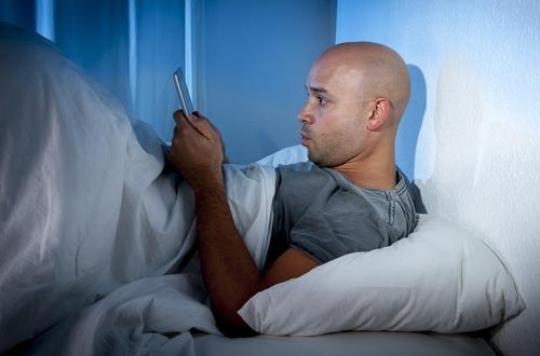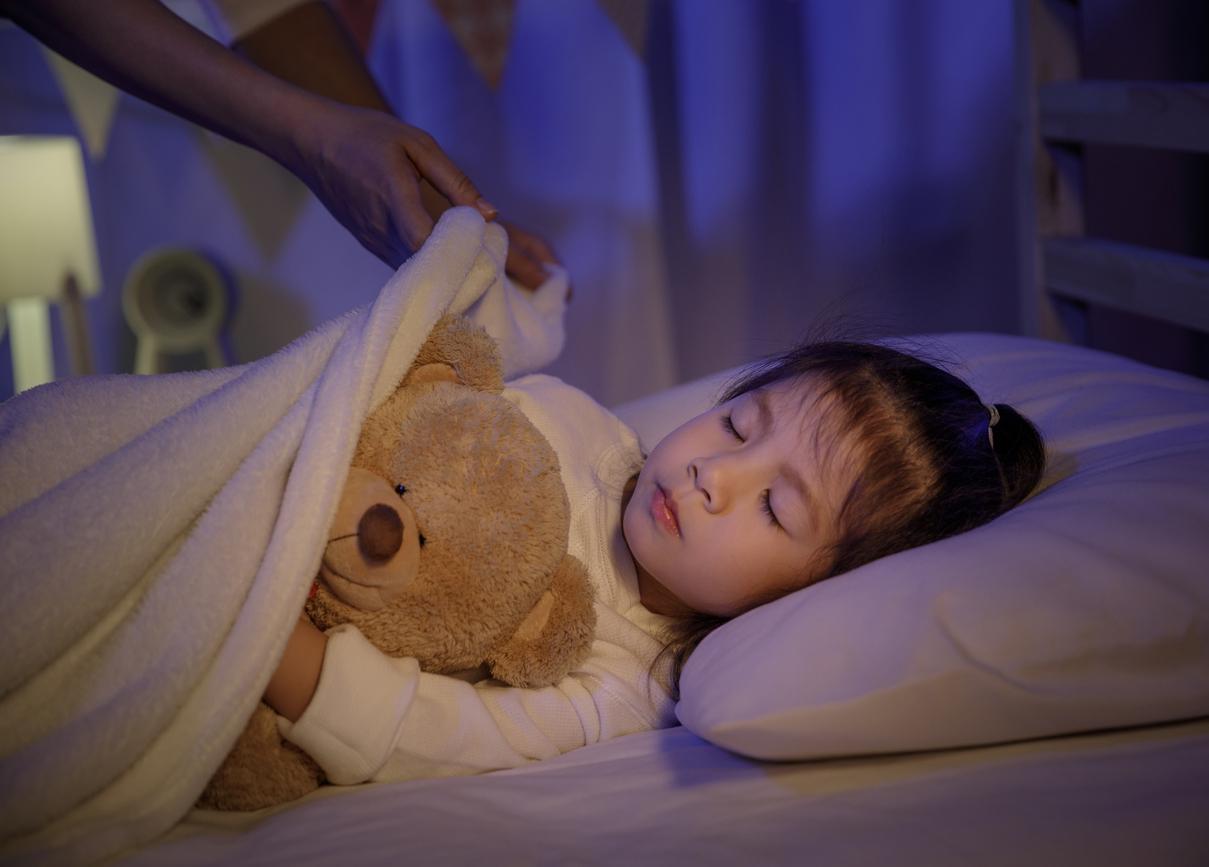Insomnia, difficulty falling asleep, light sleep… digital devices are increasingly at the root of our sleep disorders. American researchers have found the solution.

The French spend an average of 5.7 hours per day in front of screens and 23% of them consult their Smartphone before sleeping. This new trend, harmful to health, brings together significant sleep disorders, dry eyes and risks of age-related macular degeneration (AMD). Melatonin, the sleep hormone, in fact regulates the chronobiological rhythm and increases in the evening with twilight, to indicate to the body that it will soon enter a period of sleep. The blue light emitted by phones, tablets, computers and TV disrupts this process and increases alertness. Difficult after that to relax and sleep well.
As the site reports EurekAlert, the team at Columbia University Medical Center in the United States, led by Assistant Professor Ari Shechter, estimated that selective blocking of blue light during the hours before bedtime would improve sleep in people with insomnia. In short, the use of lenses or tinted glasses at night, would reduce the effects of blue light in people suffering from serious sleep disorders.
To support their theory, scientists recruited 14 people with insomnia. For seven consecutive nights, participants wore either tinted lenses that blocked blue light or clear placebo lenses for two hours before bed. Researchers found that subjects got about 30 minutes of extra sleep when wearing tinted lenses unlike clear lenses. Participants also reported greater sleep duration, quality and soundness, as well as an overall reduction in the severity of insomnia.
“Blue light doesn’t just come from our phones”
“Now more than ever we are exposing ourselves to large amounts of blue light before bed, which can contribute to or worsen sleep problems,” says Ari Shechter. “Amber glasses and lenses are affordable and can easily be combined with other cognitive and behavioral techniques to manage insomnia.” In addition to this, the researcher advises to reduce the brightness of his smartphone to a minimum.
“Blue light doesn’t just come from our phones, it is emitted by televisions, computers and especially many bulbs. LED light sources are used more and more in our homes because they are energy efficient. The glasses approach allows us to filter blue light from all of these sources, which could be particularly useful for people with sleep disorders, “says the researcher.
Using amber lenses also appears to be able to reduce blood pressure. “Insomnia is often characterized by physiological hyperactivity, which may explain the relationship between poor sleep and cardiovascular risk. For the future, it will be interesting to examine whether the blocking of blue light can be used to solve the problems. cardiovascular problems such as hypertension “, concludes the researcher.
.
















